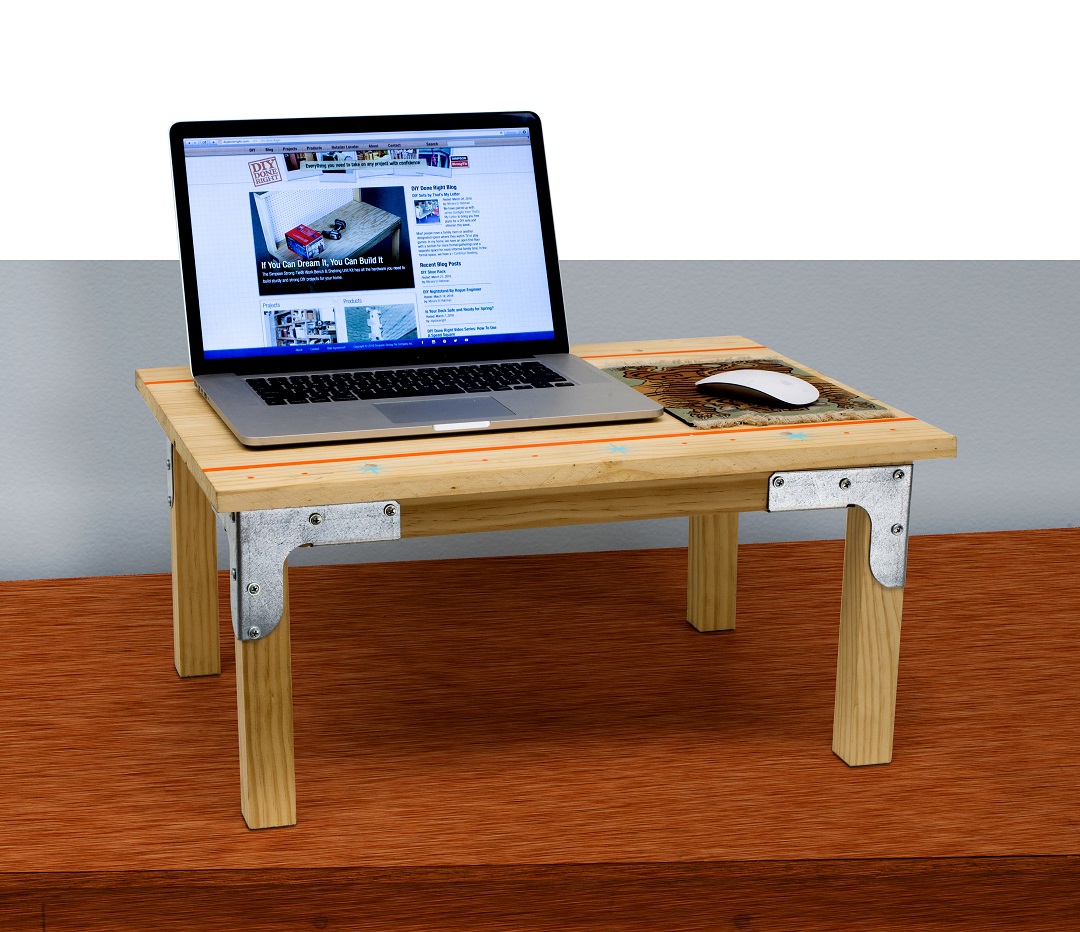Give yourself the flexibility to work standing up with this versatile computer stand. The stand can also be used as a tea table tray or even a child’s table. Construction is easy, and Simpson Strong-Tie® connectors ensure that your computer stand is sturdy and solid.
Download the plans for this DIY Computer Stand here.

Tools Needed
- Saw
- Screw gun
- #2 Phillips-head bit
- T25 bit (included with Deck-Drive™ DSV Wood screws)
- #10 counter sink bit
- Tape measure
- Clamps
- Framing square
- Straightedge
Installation Instructions
- Cut lumber to size. Since Simpson Strong-Tie connectors require only straight cuts, they can greatly simplify building with wood.
- Attach legs to connectors. Attach each leg (A) to an RTC22Z connector. For correct placement, place short rail (B) inside connector first to make sure leg is properly lined up. (Note: The edge of the leg and rail will extend approximately ¼” above the top edge of the connector.) Attach SD8 x 1.25″ wafer-head screws to outer holes of connectors.
- Attach rails to connectors. Attach short rails (B) and long rails (C) to connectors with SD8 screws. Attach screws only through outer holes first; wait to attach screws through inner holes of connector until top is attached.
- Attach top. Place top on frame so that it overlaps frame by 1″ on all sides. Connect the top to the short and long rails withDeck-Drive™ DSV Wood screws, using countersink bit. (Clamps can be used to hold top to frame during screw installation.) Then place wood plugs on top of DSV screws and make flush with the top.
Hardware Needed
- (4) Rigid Tie® RTC22Z connectors
- (8) 1¼” Deck-Drive™ DSV Wood screws (for table top)
- (44) #8 x 1¼” (SD8x 1.25″) wafer-head screws (for RTC22Z connectors)
Lumber Needed
- (2) pieces 2×2 x 8′
- (1) 18″ x 48″ x ¾” edge-glued panel
- (1) box ⅜” flat-head wood plugs
Cut List
Cut from 2×2 x 8′
- (2) 19″ long rails
- (4) 10 1/2″ legs
- (2) 13″ short rails
Cut from 18″ x 4′ x 3/4″ panel
- (1) 18″ x 24″ top
Find more do-it-yourself project plans at strongtie.com/diy.


